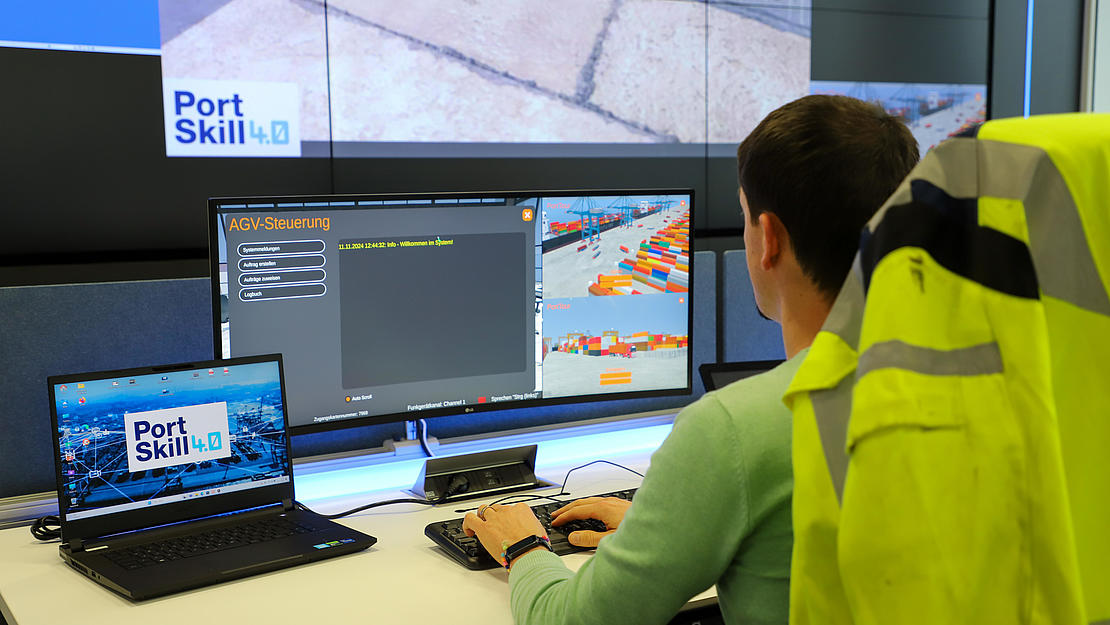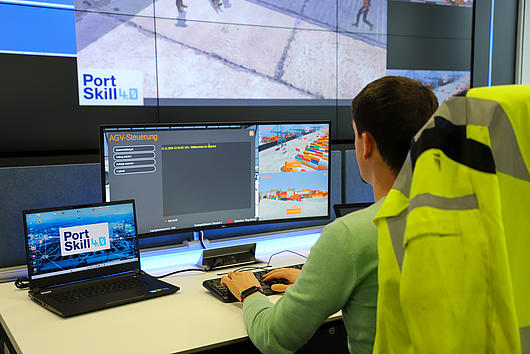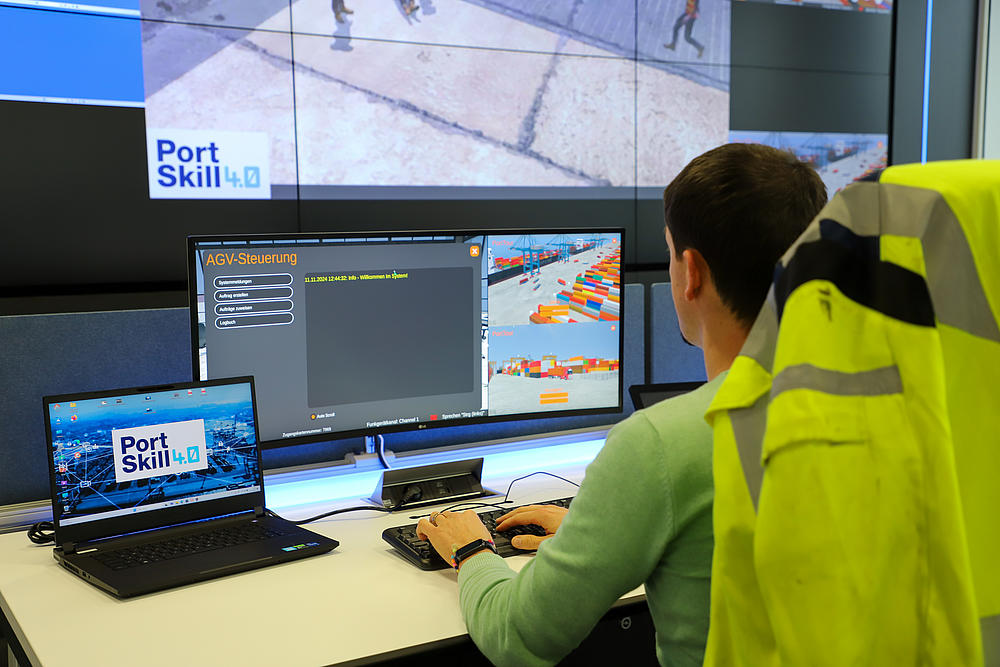11.11.2024
PortSkill 4.0: Innovative training centre opens for digitalised port operations
Today, the PortSkill 4.0 research project saw the presentation of the cutting-edge, digital training centre at HHLA Container Terminal Altenwerder (CTA) that is being set up to grapple with the demands of digitalised port operations. The new ma-co digital training centre offers cutting-edge learning technologies and customised training solutions to meet the demands of digitalised port operations.

In the past two years, extensive analyses of the operational, administrative and technical job profiles in German sea ports were conducted within the PortSkill 4.0 project in order to investigate how working life is changing with digitalisation and automation. In addition to the expected changes to jobs in the port as a result of automation and digitalisation, new tasks and roles are also being created that require specific skills, including some completely new ones.
In the training centre at CTA, which has been one of the most state-of-the-art and efficient container terminals since it went into operation, employees can receive training in these skills to prepare them for the future. With this combination of cutting-edge technology, networking learning and the analysis of future job requirements, the ma-co digital training centre offers a future-oriented platform for qualifying the port specialists of the future. The training courses and content are being tested in an initial step as part of PortSkill 4.0 and will be made available to the public after the end of the project.
Dr Melanie Leonhard, Senator for Economy and Innovation: “Working at the port means moving with the times. Continually enhancing the training and qualifications of employees is key to being able to benefit from the sea-change occurring in the world of work. The PortSkill 4.0 project is a major milestone in this transformation. It is a pioneering project in that it is providing us with important findings with regard to the qualification profiles that will be expected and required in the future. With this project, we want to prepare companies and employees for taking on future challenges in the transformation process – and we will be faced with further changes, particularly in light of the lack of skilled workers, that we will be able to deal with together in a positive way.”
Torben Seebold, Chief Human Resources Officer at HHLA and Chairman of the Sociopolitical Committee of ZDS: “With the new ma-co digital training centre, we are setting new standards for the training of our employees. The targeted, modern professional development of our employees is a critical factor for successfully maintaining and building on the competitive advantage of the German port sector.”
André Kretschmar, Head of Maritime Economy at ver.di: “The future of work at the port will look different to today. That is something we must prepare ourselves for. The jobs and tasks that people do will change. Employees need to be taught the future skills for their specific target group in order to be able to benefit from the technological developments in the digital transformation and for jobs to be secured with good collective agreements over the long term.”
In addition to integrating haptic elements, the project also focusses on testing virtual learning environments. The heart of the centre is a large video wall with six screens that, together with their consoles, serve as a control centre. Another room is equipped with a remote control console for container gantry cranes, storage cranes and rail gantry cranes, for example, while a separate room provides the user with virtual reality applications for immersive training experiences. The rooms at CTA are linked with the ma-co sites in Hamburg and Bremen so that participants can meet one another within a shared virtual training environment regardless of their physical location.
The practical, application-oriented and realistic setting significantly increases the transfer of learning. Hazardous and unusual situations can also be simulated for training purposes in a safe environment. Furthermore, training content and scenarios can be adjusted and managed much more flexibly, enabling individual learning requirements and needs to be better taken into account.
Research funding and project partnerships
The PortSkill 4.0 project is supported by the German Federal Ministry of Transport and Digital Infrastructure (BMDV) as part of the IHATEC II initiative. While IHATEC I focussed on technical projects, the group of potential candidates in was expanded in IHATEC II from 2021 to include training providers and research institutes in order to develop certifications and training courses. The port business, headed by ma-co and in partnership with ver.di, ZDS and others, was already developing the initial concepts for a people-centred project back in 2018. In 2020, the consortium was finalised with HHLA, BLG (including Eurogate) and PatientZero as partners. Following the conclusion of the project in late 2025, the training centre is also to be made accessible to other stakeholders within the maritime industry.
Researching job profiles and socio-economic effects
In addition to analysing new and changing job profiles and the relevant qualifications, the PortSkill 4.0 project also sets great store by investigating the socio-economic impact of the digital transformation within the port sector. With the funding from IHATEC II and the close collaboration with social partners such as ver.di and ZDS, a project has been brought to life based on a social partnership that is actively accompanying the transformation of work at the port.
More information on the project: www.portskill.de
Download image

HHLA employee tests the training control centre at CTA developed as part of PortSkill 4.0 project.
